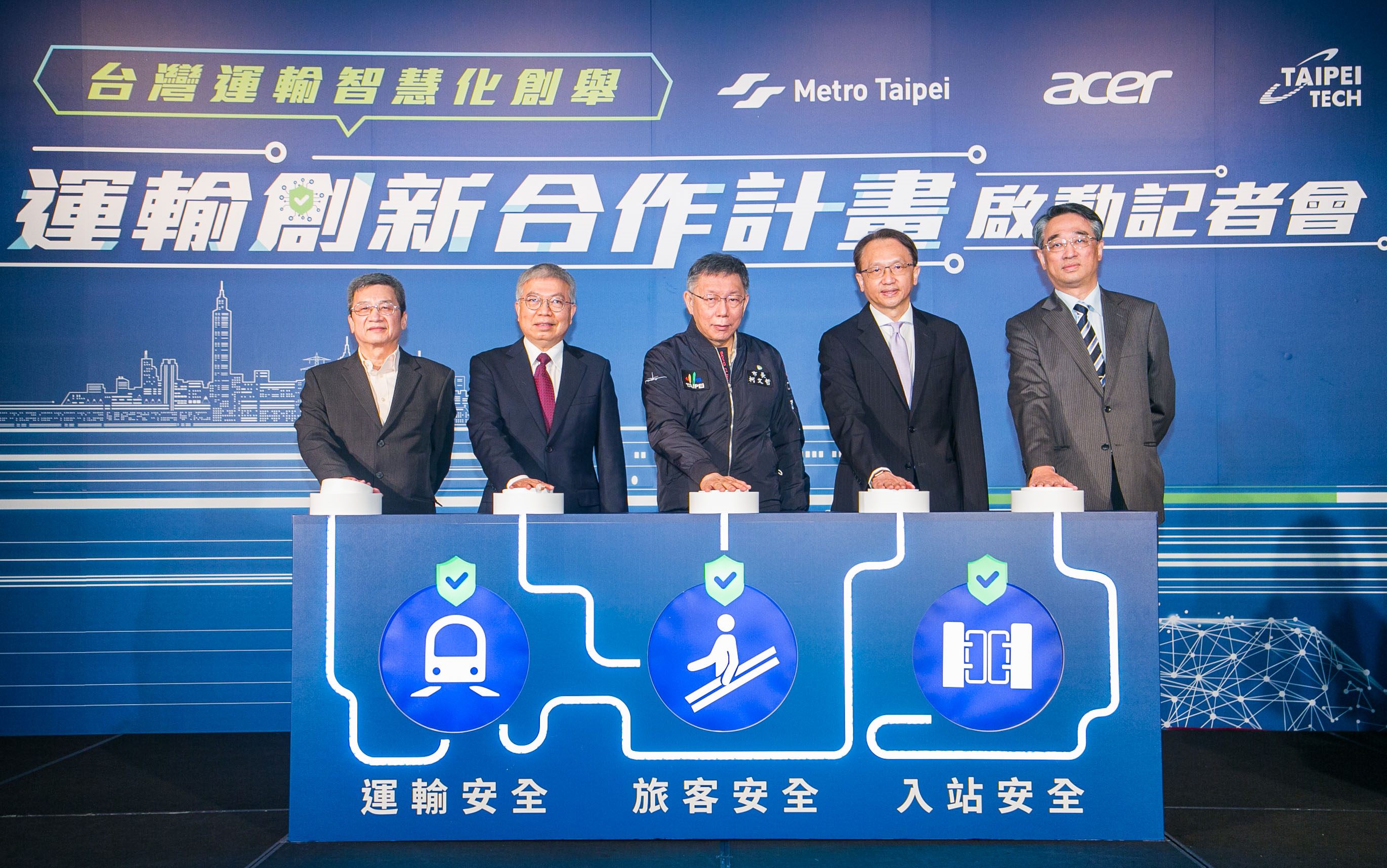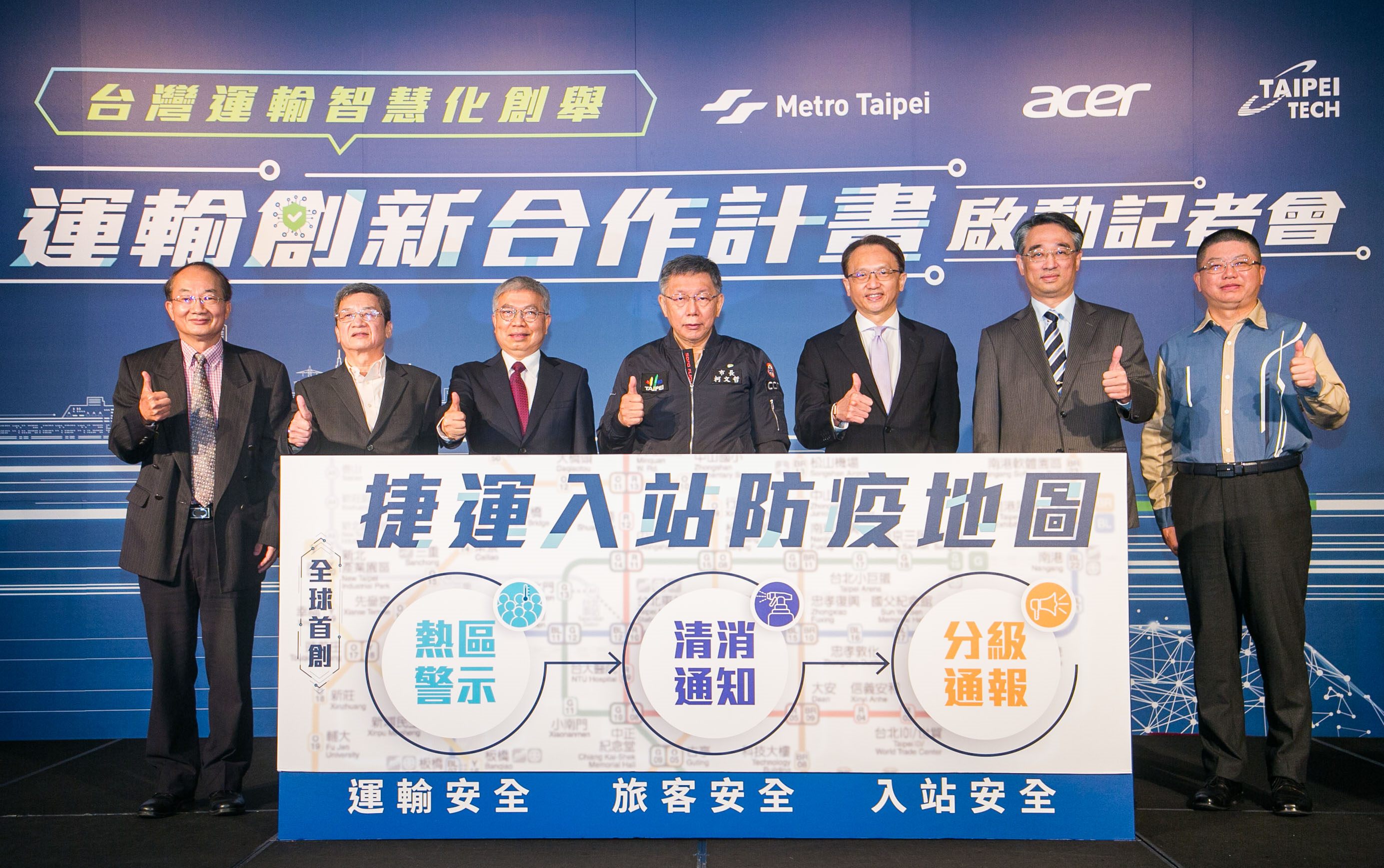According to the Taipei City Government, with modern society's rising reliance on mass public transportation networks, public transportation safety has become a major concern. The MRT system is a primary mode of transportation for residents of the Greater Taipei Area, and it plays an important role in the public's day-to-day commute.
Taipei Rapid Transit Corporation (TRTC) partnered Acer and National Taipei University of Technology (NTUT) to develop a national task force led by AI specialist professor Huang Yo-ping to provide riders with a safer and healthier transportation environment. During a press conference on December 8, the team in charge of carrying out the "Taipei Public Mass Transit Safety Enhancement Project" was announced. At the event, the new AI MRT Safety R&D Center was also unveiled.
Members of the initiative include agencies and organizations from the private sector (TRTC, Acer), government (Executive Yuan, Ministry of Transportation and Communications, Taipei City Government), academia and research (NTUT), as well as MRT riders testing out potential solutions.
Mayor Ko Wen-je said that as the city prepares for the 5G era and continues to implement TRTC's vision of "Top Class MRT, Beautiful Taipei," the company has partnered with Acer and NTUT to combine innovative energies with know-how in areas like cloud computing, big data, and AI to make Taipei's mass transit system the safest in the world. Such research might be applied to smart transportation by drawing on Taiwan's unique experience.

Mayor Ko Wen-je said that as the city prepares for the 5G era continues the vision of "Top Class MRT, Beautiful Taipei". (Photo / Provided by the Taipei City Government)
MRT Zhongxiao Xinsheng Station, MRT Zhongxiao Fuxing Station, and MRT Zhongxiao Dunhua Station have been chosen as demo locations to test the proposed safety improvements, according to TRTC President Huang Ching-shinn. The pandemic safety inspection system for station gates, the proactive escalator safety system, the virtual fence system, the rail intrusion detection system, the train car irregular passenger flow detection system, the AI station staff service system, and the fare evasion detection system are among them. The project is expected to be completed in June 2023.
Read More: Muslim-friendly environment in Taoyuan, Longgang Mosque underwent building expansion
For example, the station gate pandemic safety inspection system uses AI to detect passengers' body temperature and face mask as part of gate control, preventing those who have an abnormal temperature or don't wear a face mask from entering. The proactive escalator safety system uses an image recognition technology to identify the type of footwear worn by riders. It will use an audio message or a warning light to inform those with loose shoe laces or sandals to pay attention when using the escalator.







